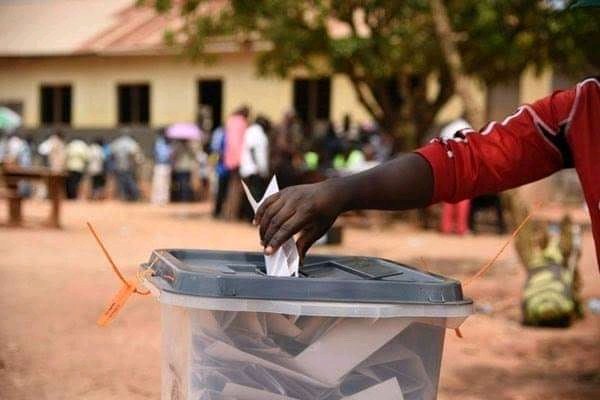Part I: Road to Uganda’s 2026 elections is a securitized one
In 1971, a young university student wrote a thesis on Frantz Fanon’s ideas in violence as the highest from of political organising.
This student would later become the president of Uganda, seizing power through the gun and then holding onto it through a combination of electoral and military dominance for 38 years and counting. Looking at the nature and role of Uganda’s security service today, the young Yoweri Museveni (now 79 years old), with no institutional military training, was an unlikely candidate to build the estimated 55,000-strong army that currently exists.
In 1986, international press reported that the National Resistance Army rebel group he led to violently overthrow the government was the first to do so without soldiers looting citizens’ property. Military officers were part of the Constitutional Assembly that produced Uganda’s landmark 1995 Constitution and allowed military representation in parliament.
Museveni’s stance was that the army be actively involved in shaping a constitution because they would later be called on to defend it. Museveni professionalized the armed forces by insisting on the promotion of educated soldiers and breaking the financial ceiling to make the Uganda People’s Defense Force (UPDF) one of the best-trained and well-equipped military establishments in the region.
The army has had tours in the Democratic Republic of the Congo, Somalia, Central African Republic and South Sudan. The security forces are a major source of pride for Uganda’s president and the institution against which all others are measured and made subordinate. Museveni, whose pet subjects are said to be history and military strategy, also prides himself as an original thinker.
He frowns on the imitation of Western ideas when it does not suit his objectives and has entrenched the military as a centralized institution united by his influence, control and vision.
Keen to make sure power is never concentrated in one institution or one person, the Museveni presidency has created a litany of security organizations nestled under the UPDF, including the Special Forces Command, the Uganda Police, the Local Defense Unit, the Chieftaincy of Military Intelligence, the Internal Security Organization, the External Security Organization, the Joint Anti-terrorism Task Force, the Joint Intelligence Committee, Rapid Response Unit, State House Counter- Intelligence Unit and Political Intelligence Network.
The president has established a culture in which both high and low-ranking soldiers and officers in different security agencies brief him on the same subject. In 2015, the renegade General David Sejusa admitted that he spent eight years as coordinator of intelligence services, but only met the president thrice. In all that time, his juniors frequently briefed the president without Sejusa’s knowledge.
Similarly, despite an established formal local government structure, Museveni increasingly relies on resident district commissioners, who serve as the heads of security at the district level and report directly to the president’s office on matters in any given district across the country.
In this way, Museveni has built a security sector whose pockets of influence are indifferent to hierarchical rules that come with rank and title but united in their purpose to protect the political space, ambitions and power of the ruling party and the presidency.
One of the roles that the security agencies play is to fuel the political intelligence machine that protects and maintains the presidency. As the 2026 election approaches, the demand and danger of an insatiable political intelligence machine grows with it.
Intelligence operatives, sections of the army and police are involved in collecting and at times fabricating information on political actors, their supporters and members of the international development community, which is used as a justification for political and electoral violence.
Like the 2021 election, the role of security forces in Uganda’s political past and a looming political transition, the changing role and impact of the partisan involvement of the security forces and agencies are a core part of the country’s politics. It has become a matter of course that different branches of the security service are a viable and threatening part of the pre-election, election day and post-election process in Uganda.
It is also increasingly obvious that beyond securing the electoral process and citizens, the presence and role of the security service is political and viewed by political parties, candidates and voters as partisan.
Any political actor considering a change of power needs to be aware of this reality that underpins Uganda’s political system. Unjustified and inappropriate interference by security forces in the elections and broader political process, encouraged by noncompliance with barely adequate legal and institutional frameworks, will constitute one of the major problems to comprehensive political reform in Uganda.
THE POLITICIZATION OF SOLDIERS
Long before Museveni became president, he criticized the militaries of previous administrations for lacking an ideology. Speaking at the fifth anniversary of the ruling party in 1991 and paraphrasing from one of his political mentors (China’s Mao Zedong), Museveni said he attached “the greatest importance to the politicization of our soldiers.”
Indeed, within Uganda’s borders, the army and its affiliate institutions such as the police and intelligence agencies play a role that goes well beyond protecting citizens and keeping law and order.
The military has involved itself in the business of agriculture, manufacturing, engineering, construction, emergency service response during natural disasters. In 2014, it announced it would take over the management of the Miss Uganda beauty contest! Nevertheless, the most overt and insidious of the UPDF’s extra-circular roles within Uganda’s borders has been its involvement in partisan political contestation in Uganda.
ainebyoonat33@gmail.com

